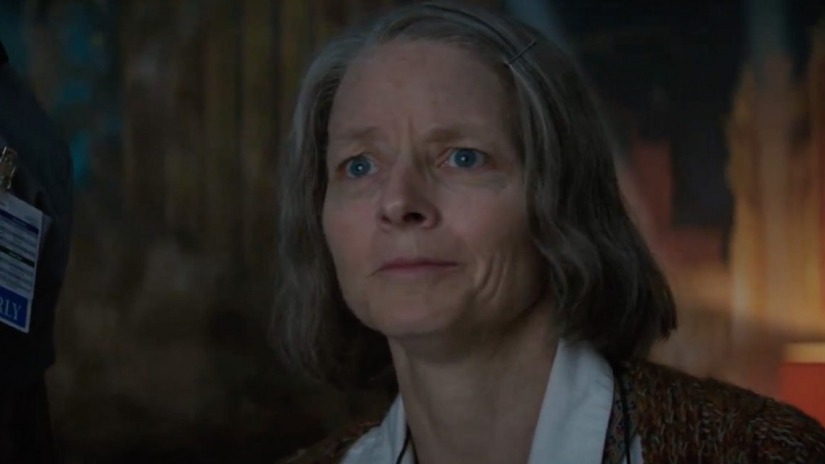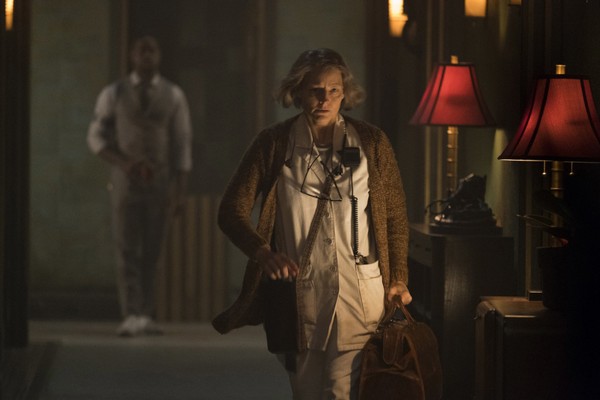“Hotel Artemis” is billed as a standard summer action thriller, if a slightly weird one. The plot revolves around the titular hotel, which has been converted into a secret hospital for criminals. A group of people staying at the hospital, as well as the elderly woman who runs it, try to keep it secure from the dangers outside its walls.
In actuality, this movie is anything but standard. There are times where “Hotel Artemis” is run-of-the-mill action, thriller and sci-fi fare, but often, the action takes a backseat to inspired storytelling. Director Drew Pearce has said he set out to make “one person’s favorite film, rather than lots of people’s OK film.” That definitely comes across — there are some out-there choices, but they make for a far more memorable movie than others Pearce has worked on, like “Iron Man 3” and “Mission Impossible – Rogue Nation.”
Each character in “Hotel Artemis” basically follows their own arc, all of which are woven together by the setting of the hotel. None of these plots are particularly grand or sweeping; rather, they’re focused and character-centered. The movie comes across as meticulously built, the story moving between characters, between settings inside and outside the hotel, between a feeling of being right there with the protagonists and watching from afar. The action takes place over the course of only one day and almost wholly within the claustrophobic confines of the hospital.
That doesn’t mean that there’s no worldbuilding, though. “Hotel Artemis” is set in a chaotic near future, where rising inequality has led to water being unaffordable to all but the rich. In Los Angeles, where Hotel Artemis sits hidden in the top floor of a skyscraper, there are constant riots, shootings and fires.
It’s not really the most creative setting in the world. It certainly draws from real events — clean water is inaccessible to many in the U.S. right now, such as the residents of Flint, Michigan, while companies like Nestle control who can access it — but that’s also a pretty standard sci-fi trope.
That’s okay though, because “Hotel Artemis” doesn’t spend much time exploring the world outside the hospital’s walls. The city serves as a backdrop, and the film seems to dip easily in and out of it, giving the audience small, subtle tastes of the wider setting. The same technique applies for the characters; since the audience only gets to see a day in their lives, for each one there’s a glimpse into their inner self and their motivations, but nothing more. Altogether, the effect is like a snapshot of a different world — tangible but out of reach.
The exception to this sparse characterization is the main character of “Hotel Artemis”: the nurse in charge of the hospital, portrayed brilliantly by Jodie Foster in scrubs, worn out sneakers and old-age makeup. The nurse, whose character never receives a name, doesn’t dare venture outside the building and listens to anti-anxiety tapes, but at the same time has no qualms about performing gory surgery on the criminals she treats, and firmly enforces her “no killing other patients” rule. Foster is, of course, perfect in the role, coming across as tough and no-nonsense but also vulnerable, with a backstory that’s slowly revealed. She makes the out-there premise of the movie somehow utterly believable.

Sterling K. Brown also puts on a stellar performance as a bank robber, code-named Waikiki, who checks his brother, code-named Honolulu, into the hotel. Tough, brooding and smart, Waikiki is the perfect foil to the more cryptic character of the Nurse. Like the other patients at the hospital, he is to an extent a stock character, but Brown still really makes the character his own.
The penned up, self-contained nature of the story also lends itself to beautiful visuals. The hotel itself is in an old, art-deco skyscraper; and the action takes place in front of painted murals, dark wood and sleek ’20s style decorations. Details like the room keys, which are hybrids of old bronze keys hanging picturesquely on hooks and futuristic transparent digital key cards, really solidify the old-in-the-new feel of the movie.
The focused shots of the run-down but quaint hotel interior are reminiscent of Wes Anderson’s “The Grand Budapest Hotel,” and the movie’s exploration of color — one scene is shot entirely in red — brings to mind the beautiful, dreamlike visuals of the “Blade Runner” movies.
But “Hotel Artemis” is not a perfect movie, and it’s certainly no “Blade Runner.” Its commitment to weirdness means some parts come across as just a little dumb, and it easily devolves into action movie tropes. The script trots out clichés and cheap punchlines — especially for Jeff Goldblum’s cameo as Niagara, whose lines are obviously meant to be edgy but come off as corny (“without the rule breakers, honey, where would you be?” …Ew.)
Plus, the brief time given to characterization means that some characters skip subtle and go straight to cartoon character. Acapulco, played by Charlie Day, is a particular victim of this. He’s a completely 2D villain who picks fights with other characters seemingly from nowhere and only hits one note, that of scumbag rich guy, throughout the whole film.

Ultimately, “Hotel Artemis” doesn’t try to tell a grand, sweeping story: it’s instead just a snapshot of a few people who are very briefly in each other’s lives. The setting is intriguingly concentric, like a Russian doll: the characters are stuck in a tiny hospital, within an old skyscraper, within a sprawling cityscape — and with the nurse in the heart of it all. Watching the movie, you get a feeling of peeling off layers to get, ever so briefly, a glimpse at the middle.
There are definitely problems: Jodie Foster has to do more than her share of heavy lifting, and often the aesthetics of a scene will be amazing but the dialogue predictable and boring. But it would be a mistake to dismiss “Hotel Artemis” as another dumb summer blockbuster. Its originality, striking cinematography and commitment to storytelling shine through, making it a joy to watch.

















